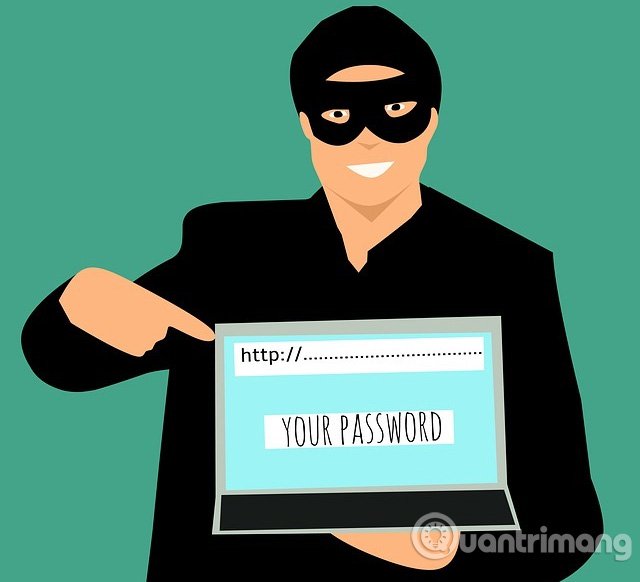5 good habits help improve online security
- If you are using Firefox, update it immediately to fix security
- 5 message security tips on iPhone
- 8 best secure email services ensure your privacy
Good security software can do many things to improve online security and protect you from the unfortunate consequences of online mistakes. Many online scams require you to cooperate with the scammer object in some way, voluntarily (if accidentally) provides access to your online data.
The best protection against these types of attacks is not software, but good security habits. Common rules that help you stay safe in real life can also protect you when online. Here are 5 good habits that help improve online security you need to know .
1. Be skeptical

This is the most important behavior change you can make. The object of fraud is based on the natural instincts of people to believe in others. In general, we often believe what people say until it is proven wrong. However, at that time, scams could happen naturally. Social engineering attacks are often based on human beliefs. Be cautious and skeptical about what might happen to end many scams.
Carefully check suspicious information with the requested source. Be sure to use the phone number listed on the company's official website, not the email signature, which may be wrong. Especially wary of unusual information that requires immediate solution. Cautious double with bank-related situations, Paypal accounts and other financial terms.
2. Is it really good?

Always ask whether the deal is too good or not. In fact, a good deal usually does not exist. Many scammers rely on people's inherent greed to make money and gain access to information. Whether financial scams involve inhumane exchanges or lists of lower-than-market prices, scammers often draw us into a better deal.
The same thing can happen on a smaller scale, with websites and downloads. Attackers can sneak into malware on your computer using sites like downloading free movies or high-tech products. Be wary of the download, installation and websites you visit.
See also: 6 clear signs that your phone is being hacked
3. Check the information carefully

Most phishing tricks on email require users to open emails and follow the instructions in them. While many people are educated about the risks of phishing attacks, they become more and more sophisticated. You have to watch carefully to discover that it is a phishing email message. Even very few people can find out after observing. However, if you think about what emails require, you can avoid scams.
For example, did you receive a request to log in to your Google or Paypal account? If so, do not follow and click on any link in the email. Visit the website by entering the domain name into the browser and log in that way. If you are unsure of the origin or legality of an unwanted email, contact the sender to confirm the authenticity.
4. Requires an "urgent" decision

Be wary of anyone trying to convince you to perform a specific action without thinking. In a common scam of US-based Western Union-based international money transfer service, scammers call individuals and imitate the IRS tax office. They say you owe arrears. To make matters worse, they say police are on their way to arrest you now. But if you transfer the arrears by bank account, you will not be arrested.
Of course, this is not all the way fraud prosecution works. The common scam that bank transfer companies like Western Union mentioned. But in fear and uncertainty, faced with a legitimate punishment, many people were stressed that they would deposit Western Union, even after ensuring that it was a scam and the IRS would not arrest keep them.
5. Confirm identity when possible

Many scammers succeed because they are the competent people or relatives of the victims. People simply don't have the opportunity to ask the authority or people they trust. Scammers are known as public servants and government officials. From a clear position of authority, they can convince victims to do what they ask for.
Some hoaxes target older people by imitating their children or grandchildren. Using a fake Facebook account, the fraudster contacted the victims' grandparents and said their children or grandchildren were stuck abroad, they needed to spend money to get them released. The call to confirm your grandchild or their parents can make it clear that it is a scam, but it is still successfully implemented by the scammer who correctly hit the victim's psychology.
As mentioned above, be sure to confirm your identity and authority clearly through other channels than information provided by scammers.
Conclude
If in doubt about the information you received, please clarify. Confirm the origin and authenticity of the request. By simply being skeptical and cautious, you can avoid online scams.
Refer to some more articles:
- How to know if your Windows computer is affected by Meltdown and Specter?
- How to enable Site Isolation security feature on Chrome
- 12 signs that your computer is hacked
Having fun!